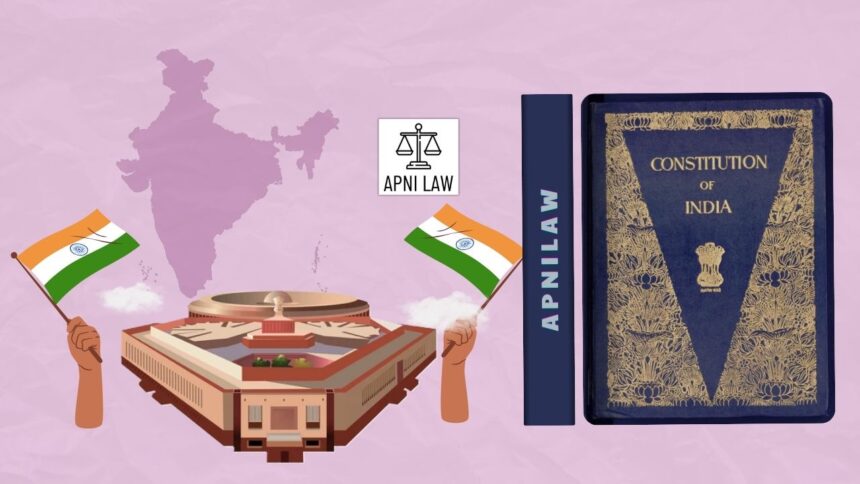Introduction
The National Commission for Scheduled Castes (NCSC) stands as a powerful constitutional body dedicated to protecting the rights and interests of Scheduled Castes in India. Established under Article 338 of the Indian Constitution, the Commission ensures that social justice and equality, core ideals of the Constitution are not merely principles on paper but active realities in governance. The NCSC acts as both a watchdog and advisor to the government, ensuring that the Scheduled Castes receive fair representation, welfare benefits, and protection from discrimination or exploitation.
Historical Background
The roots of the NCSC can be traced to the Constitution (46th Amendment) Act of 1978, which first established a commission to monitor the welfare of both Scheduled Castes and Scheduled Tribes. Later, the 89th Constitutional Amendment Act of 2003 created two separate bodies: the National Commission for Scheduled Castes (Article 338) and the National Commission for Scheduled Tribes (Article 338A). This separation was essential, as it allowed for more focused attention on the unique socio-economic challenges faced by each community.
The establishment of the NCSC represented a historic step toward fulfilling the promises made in the Preamble, justice, equality, and fraternity for communities that had been historically marginalized and oppressed.
Constitutional Provision under Article 338
Article 338 lays down the composition, powers, and functions of the National Commission for Scheduled Castes. According to the provision, the Commission consists of a Chairperson, Vice-Chairperson, and three other members, all appointed by the President of India. Their terms and service conditions are also determined by the President.
The NCSC functions as an independent constitutional body that reports directly to the President, ensuring that its findings and recommendations carry significant weight. This independence allows the Commission to operate without political interference and address issues concerning Scheduled Castes with impartiality and authority.
Functions of the National Commission for Scheduled Castes
The NCSC performs a wide range of functions designed to ensure justice and equality for Scheduled Castes. It investigates and monitors all matters relating to the safeguards provided under the Constitution, particularly those mentioned in Part XVI and various social welfare laws.
It inquires into specific complaints about the deprivation of rights and safeguards of Scheduled Castes and recommends appropriate actions to the government. The Commission also advises the Union and State Governments on measures to improve socio-economic conditions and ensures that development schemes benefit marginalized groups.
The NCSC regularly submits annual and special reports to the President, highlighting progress and challenges in implementing constitutional and legal protections. These reports are tabled before Parliament, ensuring public accountability.
Additionally, the Commission plays an important role in evaluating the working of reservation policies in education, employment, and politics. It also examines the adequacy of welfare schemes, land reforms, and financial assistance programs designed for Scheduled Castes.
Powers of the NCSC
The NCSC enjoys powers similar to those of a civil court under the Code of Civil Procedure. It can summon witnesses, demand the production of documents, receive evidence on affidavits, and requisition public records from any office. These powers enable it to conduct effective investigations into issues concerning Scheduled Castes.
The Commission’s reports and recommendations, though not legally binding, hold persuasive authority. Government departments are expected to take action based on its findings and respond formally, explaining the steps taken to address identified issues.
Importance of the NCSC
The National Commission for Scheduled Castes acts as a guardian of social justice. It bridges the gap between constitutional ideals and ground realities. The Commission ensures that Scheduled Castes have access to education, employment, and representation in governance while being protected from social discrimination and violence.
Its interventions have led to reforms in welfare programs, stricter enforcement of laws like the Scheduled Castes and Scheduled Tribes (Prevention of Atrocities) Act, 1989, and greater awareness of caste-based injustices. Through its reports and investigations, the NCSC holds both central and state governments accountable for their constitutional duties toward marginalized citizens.
Challenges Faced by the NCSC
Despite its constitutional status, the NCSC faces several challenges. Limited financial autonomy, delays in implementing its recommendations, and political interference often hinder its effectiveness. Many reports submitted by the Commission remain pending for action, reducing its practical influence.
Another major challenge is the persistence of caste-based violence and discrimination in several regions. While legal frameworks exist, their enforcement remains inconsistent. Strengthening the NCSC’s authority and ensuring prompt government response to its findings are crucial steps toward achieving the goals of social justice and equality.
FAQs on the National Commission for Scheduled Castes
1. What is Article 338 of the Indian Constitution?
Article 338 establishes the National Commission for Scheduled Castes. It defines its composition, powers, and duties, granting it the authority to investigate and monitor all matters related to the constitutional and legal safeguards of Scheduled Castes.
2. What are the main functions of the NCSC?
The NCSC monitors the implementation of constitutional safeguards, investigates complaints of discrimination or rights violations, and advises governments on welfare and development measures for Scheduled Castes.
3. Is the NCSC’s recommendation binding on the government?
No, the NCSC’s recommendations are not legally binding. However, they carry significant moral and constitutional weight, and governments are expected to act on them or provide justification if they don’t.
Conclusion
The National Commission for Scheduled Castes, established under Article 338, is a cornerstone of India’s constitutional framework for social justice. It ensures that Scheduled Castes are not left behind in the pursuit of national progress. By monitoring safeguards, addressing grievances, and recommending welfare measures, the NCSC strengthens the democratic promise of equality.
While challenges persist, the Commission remains a crucial institution in India’s journey toward eradicating caste-based discrimination and empowering historically marginalized communities. Its existence reminds us that true democracy thrives not merely on political freedom but also on social and economic justice for all.








